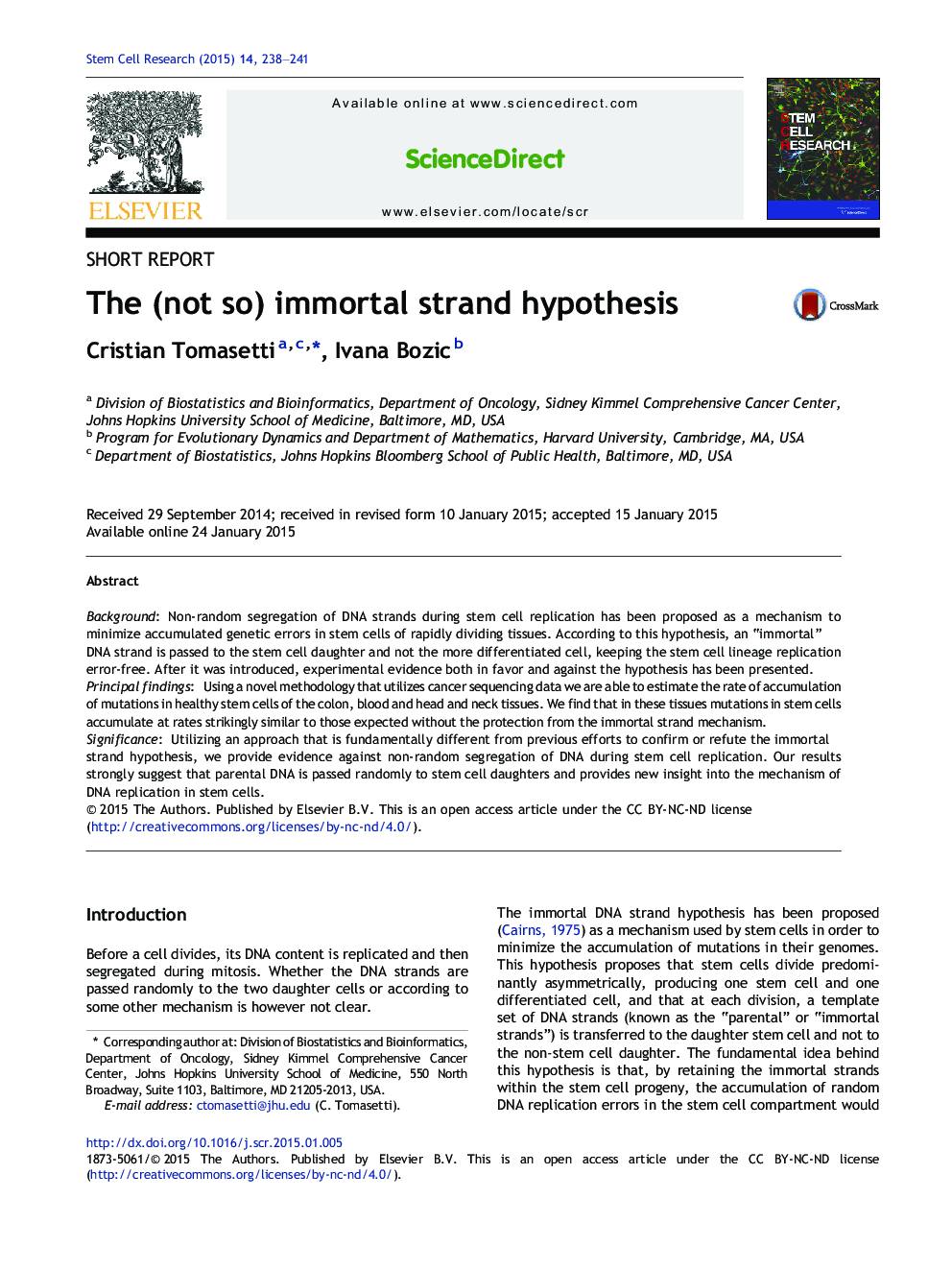| Article ID | Journal | Published Year | Pages | File Type |
|---|---|---|---|---|
| 2094060 | Stem Cell Research | 2015 | 4 Pages |
•Novel methodology to estimate the accumulation of mutations in normal stem cells.•Mutation rates found are comparable to those expected without protection mechanism.•Strong evidence against non-random segregation of DNA during stem cell replication
BackgroundNon-random segregation of DNA strands during stem cell replication has been proposed as a mechanism to minimize accumulated genetic errors in stem cells of rapidly dividing tissues. According to this hypothesis, an “immortal” DNA strand is passed to the stem cell daughter and not the more differentiated cell, keeping the stem cell lineage replication error-free. After it was introduced, experimental evidence both in favor and against the hypothesis has been presented.Principal findingsUsing a novel methodology that utilizes cancer sequencing data we are able to estimate the rate of accumulation of mutations in healthy stem cells of the colon, blood and head and neck tissues. We find that in these tissues mutations in stem cells accumulate at rates strikingly similar to those expected without the protection from the immortal strand mechanism.SignificanceUtilizing an approach that is fundamentally different from previous efforts to confirm or refute the immortal strand hypothesis, we provide evidence against non-random segregation of DNA during stem cell replication. Our results strongly suggest that parental DNA is passed randomly to stem cell daughters and provides new insight into the mechanism of DNA replication in stem cells.
